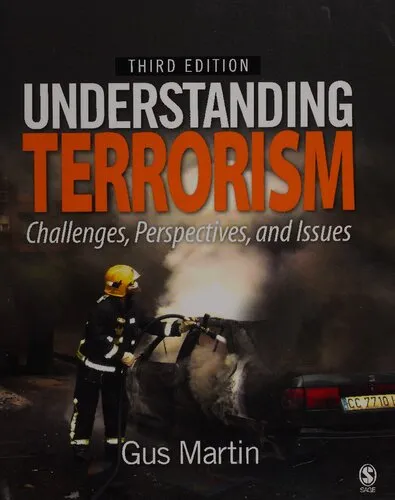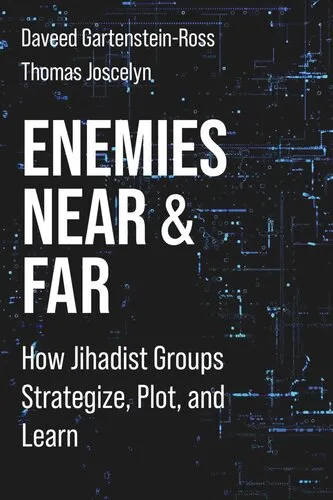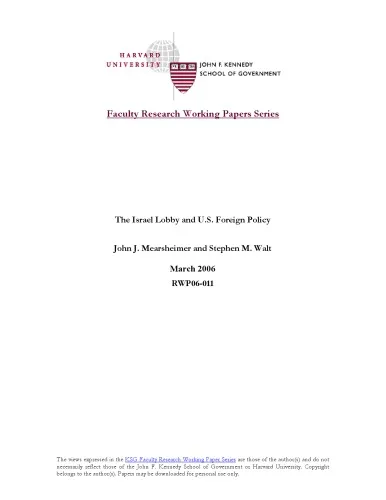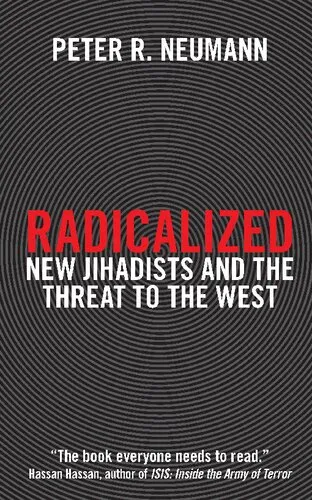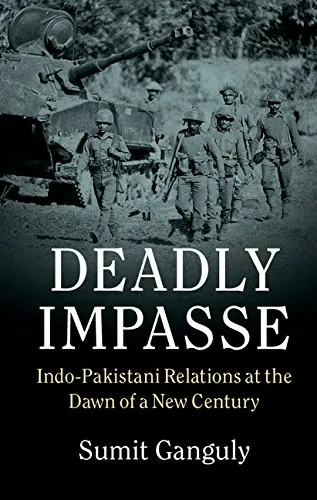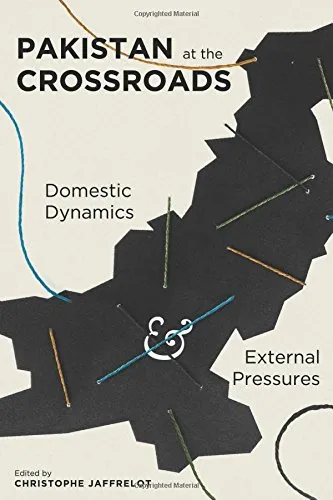Understanding Terrorism – Challenges, Perspectives, and Issues
4.5
Reviews from our users

You Can Ask your questions from this book's AI after Login
Each download or ask from book AI costs 2 points. To earn more free points, please visit the Points Guide Page and complete some valuable actions.Related Refrences:
Introduction to "Understanding Terrorism – Challenges, Perspectives, and Issues"
In today's world, terrorism remains one of the most complex and multifaceted challenges faced by global societies. The book "Understanding Terrorism – Challenges, Perspectives, and Issues" by Martin Gus serves as a comprehensive guide to examining the intricate dynamics underpinning terrorist ideologies, their evolution, and the impact on international peace and security. With a thought-provoking approach and grounded in empirical research, this book offers readers invaluable insights into the key drivers of terrorism, the socio-political landscapes that foster radicalization, and effective strategies for mitigating its effects.
As the nature of terrorism continues to evolve in the 21st century, this book equips policymakers, students, academicians, and concerned citizens with the tools to grasp its complexities. This detailed introduction delves into the essence of the book, its key findings, and why it is an indispensable resource for anyone seeking an informed perspective on this pressing global issue.
Detailed Summary of the Book
"Understanding Terrorism – Challenges, Perspectives, and Issues" is not just an exploration of terrorism but also a thorough analysis of the forces that shape it. The book is structured around several critical themes that dissect terrorism from multiple angles, ensuring a 360-degree understanding of the phenomenon. Its key sections cover topics such as:
- The historical origins and evolution of terrorism.
- Religious and ideological motivations behind terrorism.
- The role of state and non-state actors in terrorism financing.
- Socioeconomic and political drivers of radicalization.
- Global counter-terrorism strategies and their effectiveness.
The book goes beyond merely cataloging historical events; it actively engages with the concepts of ideology, identity, and power struggles to uncover the systemic roots of terrorism. Additionally, it explores the perspectives of victims, perpetrators, and policy analysts to present a balanced narrative, free from bias or oversimplified conclusions.
Key Takeaways
This book contributes to a deeper understanding of terrorism by offering key insights, such as:
- Terrorism is not a monolithic phenomenon; it varies greatly across regions, ideologies, and time periods.
- Understanding the root causes of terrorism is critical to devising effective counter-terrorism strategies.
- Economic disparity and political instability play significant roles in fostering radicalization.
- Counter-terrorism efforts must avoid exacerbating the marginalization of vulnerable communities.
- Collaboration between nations is essential for tackling transnational terrorist networks.
By weaving together historical analysis, policy critique, and real-world examples, this book equips readers with actionable knowledge to address terrorism from policy, social, and ethical perspectives.
Famous Quotes from the Book
"Understanding Terrorism – Challenges, Perspectives, and Issues" is filled with impactful quotes that encapsulate key concepts and provoke deep reflection. Some of the most memorable include:
"Terrorism is not simply the result of hate; it is the consequence of unresolved grievances, often exacerbated by systemic failures."
"To fight terrorism effectively, one must understand that it thrives on fear and thrives even more on misunderstanding."
"Addressing the drivers of terrorism requires not only military action but also educational reform, economic investment, and social cohesion."
Why This Book Matters
At a time of increasing polarization and misinformation, "Understanding Terrorism – Challenges, Perspectives, and Issues" serves as a lighthouse for clarity and informed dialogue. Here are a few reasons why this book is vital:
- It presents a balanced view of terrorism, offering empathy for both victims and rehabilitated perpetrators.
- The book equips policymakers with practical frameworks for designing nuanced and effective counter-terrorism strategies.
- It is an essential academic resource, suitable for courses in political science, sociology, international relations, and more.
- It encourages readers to move beyond stereotypes and recognize the human dimensions of terrorism.
Ultimately, this book impacts not just the academic or policy-driven discourse on terrorism but also aids in cultivating global solidarity towards building a safer, more compassionate world.
Free Direct Download
You Can Download this book after Login
Accessing books through legal platforms and public libraries not only supports the rights of authors and publishers but also contributes to the sustainability of reading culture. Before downloading, please take a moment to consider these options.
Find this book on other platforms:
WorldCat helps you find books in libraries worldwide.
See ratings, reviews, and discussions on Goodreads.
Find and buy rare or used books on AbeBooks.
